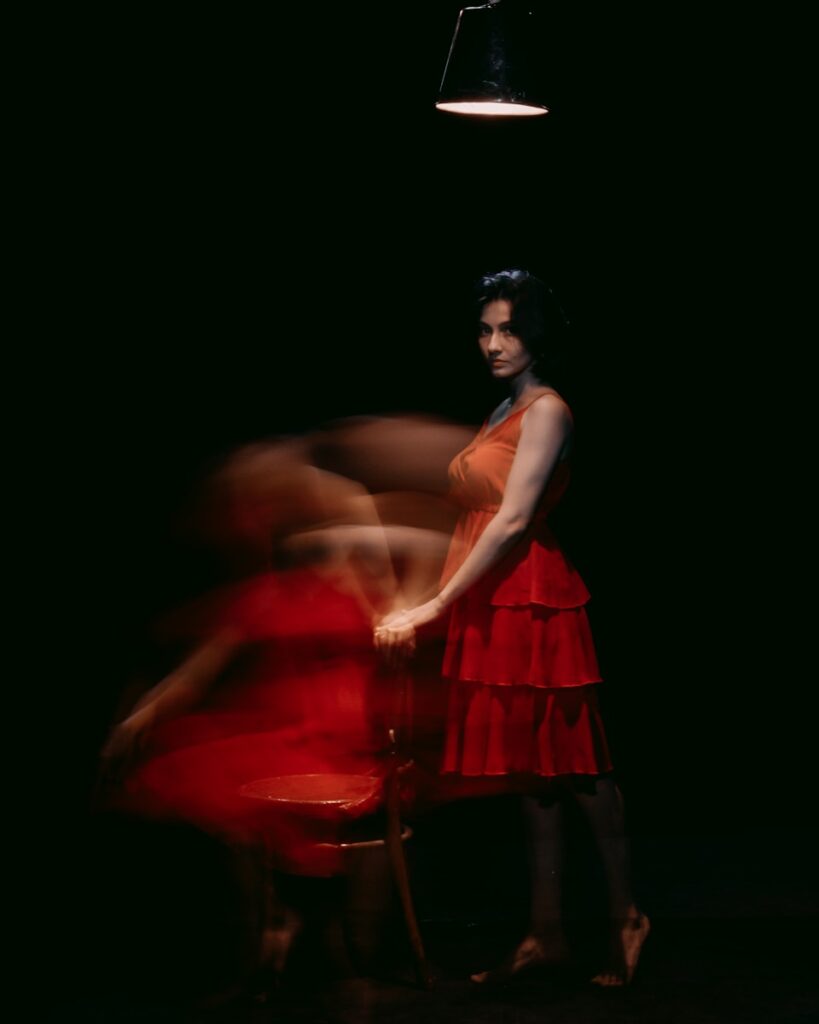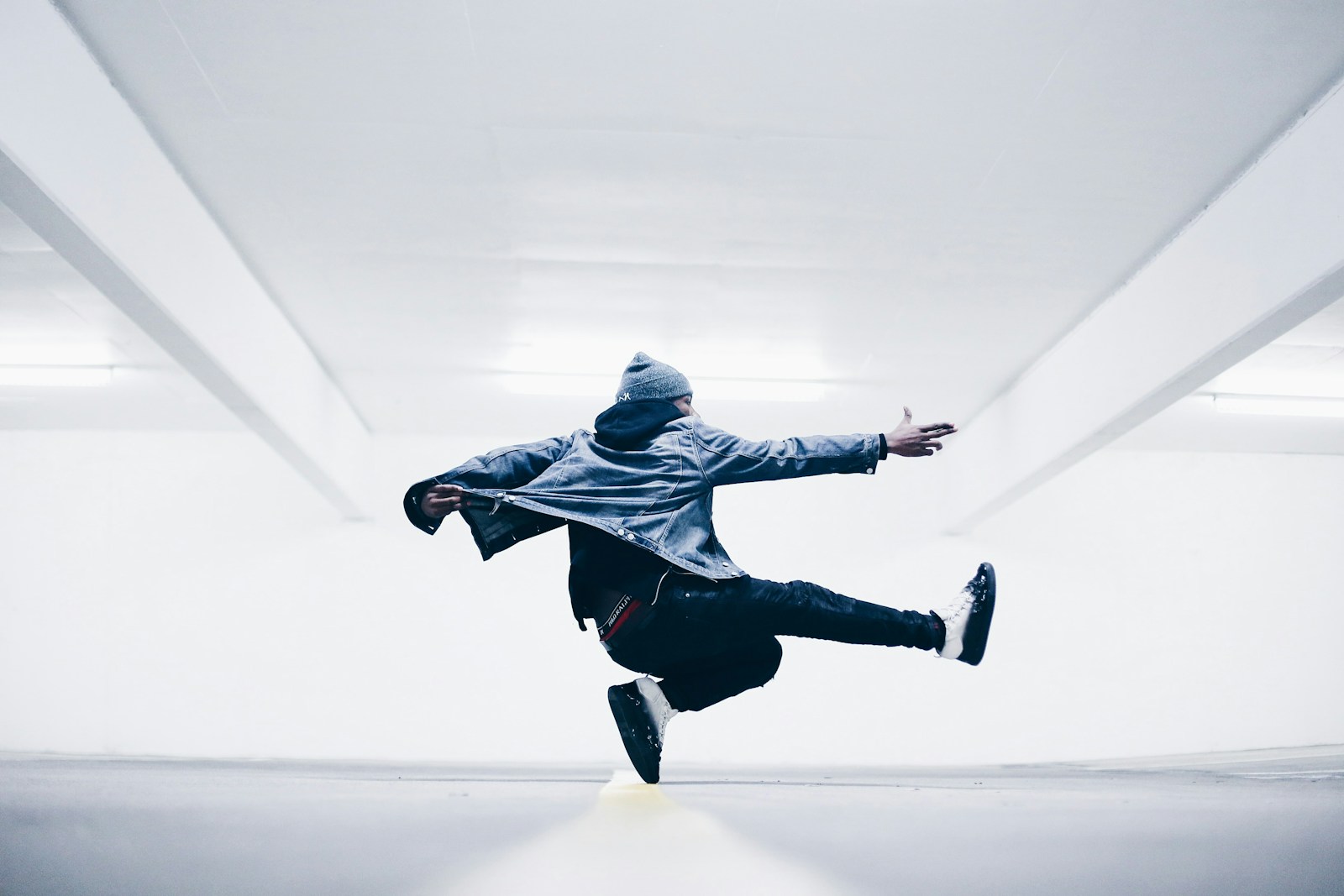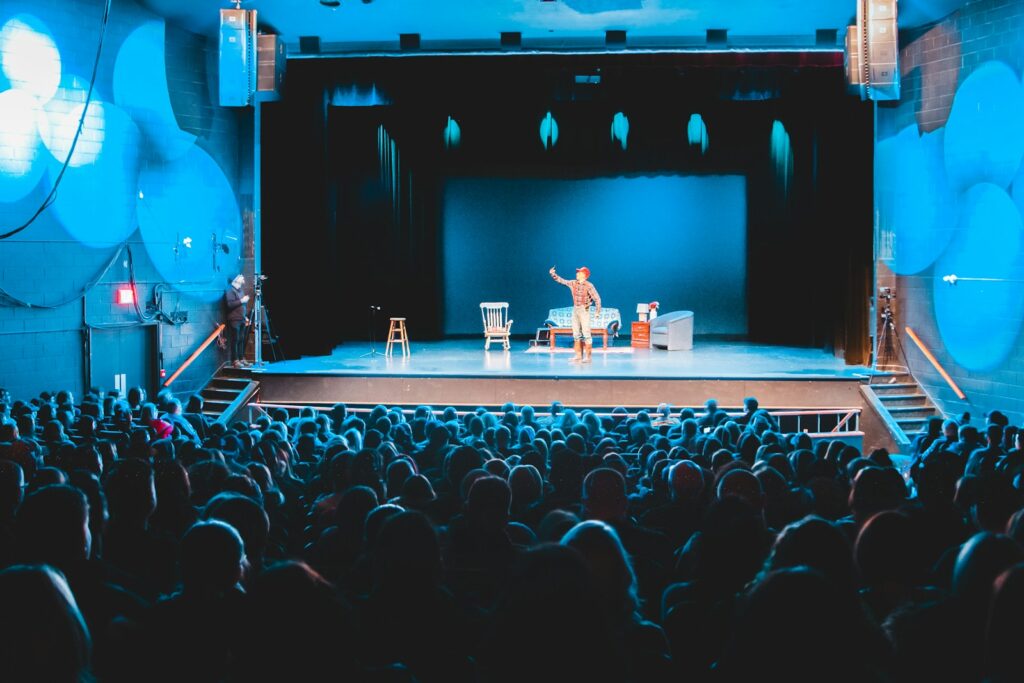



SIMPLE STUFF
Improvisers constantly forget the reality of stage craft.
Caught up in our world of make-believe, it’s easy to ignore audience sight lines. (If you can’t see them, they probably can’t see you)
We whisper intimately but forget that the people in the last row of the theatre don’t have super-sonic hearing. (Speak up please!)
Here are basic trap that we all fall into. Attending to these will make you look like a better performer. This instantly improves other performance skills by setting your mind at ease.
Interaction on stage is not just about communication with your partner. You are communicating with your the audience. Remember that the MAJORITY of your communication doesn’t come from language you speak. It comes from the expression you give.
A drop of your eyebrows conveys confusion, doubt and a change in the relationship. If the audience misses this moment because your back is to them, they don’t get the same show as everyone else.
♥ TIP : If you can’t see the audience in your peripheral vision, They can’t see you. Turn your shoulders or head more towards the audience

Light is your friend.
Good lighting on stage isn’t about colour and shape. It’s about LIGHTING THE PERFORMERS. (Lighting technicians please remember this much forgotten fact ESPECIALLY for comedy.)
Performers, when you’re on stage FIND THE LIGHT. AVOID THE SHADOWS. Walk around on stage with the general stage lights up and make sure there are no dead spaces where shadows occur. You can do this with a friend walking around on stage so you can see what the audience sees. You can do it with your eyes closed and sensing through your eyelids where it’s brighter.
♥ FACT : Humans “hear” better when they can see your lips moving. Studies show that our own lips move as we watch a speaker move their mouth. Remove sight and our listening suffers.

Nervous improvisers will say more than they need. There’s an inner feeling that if they keep talking, no one will have a chance to see their fear and weakness.
In reality, if you are quiet and move smoothly, you project confidence. You give the audience a chance to think about what’s about to happen. You create expectation that creates emotion in the audience.
Use this tip as an accent in verbal scenes. Abusing the silence mechanically gets boring.
♥ FACT: When you pass through security at an airport, the passport control authorities ask many questions. Sure they listen to the answer but they’re also trained to listen to the amount you speak. Anxious people with something to hide talk much more than the average traveller.

Great improvisers melt into their environment. Weak Improvisers forget that there’s anything but the reality in their head.
A phone rings in the audience: Answer the imaginary phone in your jacket. It doesn’t matter that you have other plans. The sound changes those plans.
The sound improviser plays a sound effect. RESPOND.
The Musician adds music, stop talking for a moment and let the musical tone affect the character and the actions on stage.
The audience hears what’s going on and they engage with it to make sense of the moment. You’d be smart to follow their lead.
♥ FACT : Ancient Greeks treated mental health issues with sound and many Middle Eastern cultures built “health centres” where music was a key healing method.

FEAR and ANXIETY causes us to retreat. Watch newer improvisers performing. They move to the very back of the stage. The audience represents the danger and the performers try to get as far away from them as they can.
Get close to the audience. Walk towards them when you feel your body being pulled to the back curtain. Immediately, the audience treats you differently. They’ll sit straighter or lean towards you. (Unless you are being aggressive… then they pull back)
♥ TIP : Your intuition is something that will protect you. It is set to survival mode. Counter-intuitive actions like moving towards the scary audience makes you a magical, powerful being in their minds

What do you do when you are scared? You try to find a safe space. That’s what your brain does on stage when it’s not coping with the current reality.
Calmly walking across the stage is an amazing thing for the audience to watch. You look like you own that scary foreign place that the audience fears to step on. And when you get to where you are going, hold your ground confidently or do something specific. The audience expects that you know what you are doing. (You don’t have to know. You just have to make the journey worth watching.)
Stand or sit still occasionally. It shows some control from the tendency to flee from danger.
♥ FACT: Anxious animals pace back and forth in a small area. Wherever they go IS NOT the place they want to be. This is “a clear sign that an animal is not coping with their environment”. (Bashaw & Kelling, 2007; Mason, 1991). Performers feeling anxiety fidget and pace and avoid direct contact with their partner or the audience.
